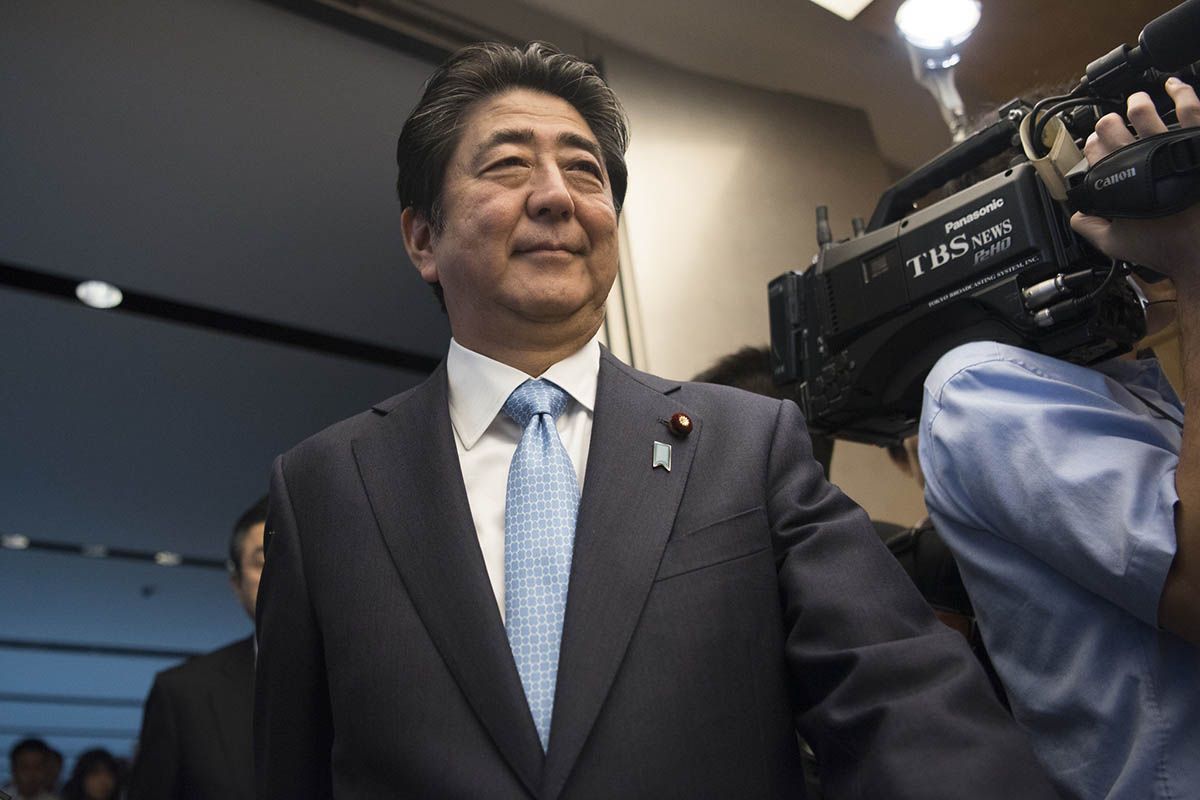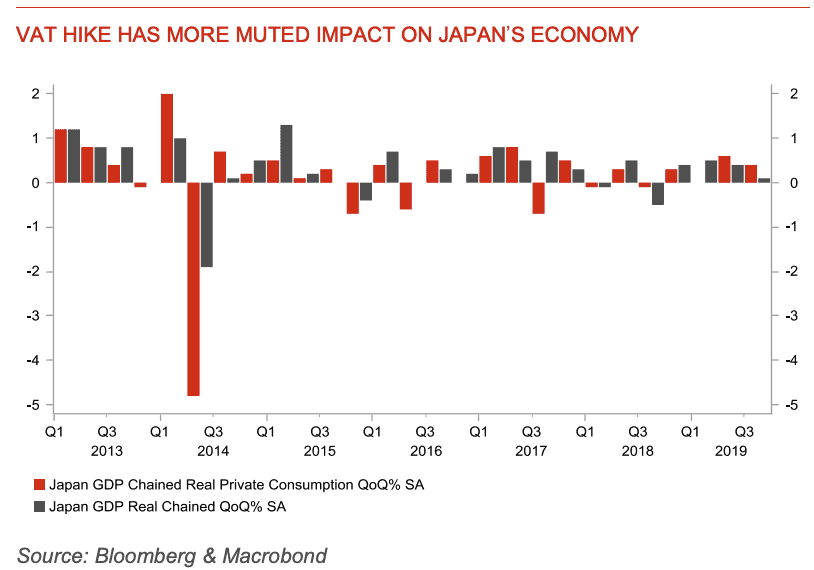Japanese Yen: Economy Forecast to Enter Recession in 2020

Above: Japan's President Shinzo Abe has looked to raise sales tax to improve public finances, raising expectations for a recession in 2020. Image © Chairman of the Joint Chiefs of Staff, accessed Flickr, reproduced under CC licensing.
- Japan's latest GDP data disappoints
- UOB analysts warn of recession in 2020
- Sales tax increase could trigger economic contraction
- BoJ response key for JPY outlook
There's potential weakness ahead for the Japanese Yen, at least if a forecast for the country's economy to enter recession in 2020 are born out.
Economists at United Overseas Bank - the Asia-facing lender based in Singapore - say the Japanese economy a collapse of private spending in 4Q 2019 and extending into 2020, will drive Japan into a recession next year.
"We maintain a cautious stance on Japan’s growth outlook as we continue to see Japan facing significant challenges on two fronts: global trade uncertainties and domestic market weakness post October 2019 sales tax hike," says Alvin Liew, Senior Economist at UOB.
The call by UOB comes after Japan released third quarter GDP data, that showed the economy grew just 0.1% quarter-on-quarter, down from 0.4% in the previous quarter.
Annual GDP growth stood at 0.2% in the third quarter, well below expectations for a reading of 0.8% to be announced.
Quarterly capital expenditure held up at 0.9%, but private consumption disappointed by reading at 0.4%, where the expectation was for a reading of 0.6%.
The Japanese Yen paid scant regard to the data, instead it continued to trend according to overall global investor sentiment. The Pound-to-Yen exchange rate is quoted at 139.74, while the Dollar-to-Yen exchange rate is quoted at 108.66.
While the currency appears to have been unfazed by the growth figures, it will almost certainly have to react to any significant slowdown in the domestic economy in coming months.
UOB's economists forecast the Japanese economy to grow 0.7% in 2019, up from the 0.5% growth seen previously.
But looking ahead, a significant slowdown is envisaged.
"We still expect trade headwinds and more importantly, a collapse of private spending in 4Q 2019 and extending into 2020, which will consequently drive Japan into a recession next year. Notwithstanding the Tokyo Olympics next year, we believe that Japan’s GDP will contract by 0.8% in 2020," says Liew.
At the heart of concerns for the Japanese economy is a hike in the sales tax rate from 8% to 10% in October.
"Ahead of the last sales tax hike in April 2014, personal consumption, capex, and residential investment were all boosted temporarily in Q1 2014. After the tax hike in April 2014, they all contracted in Q2 2014 resulting in a negative GDP print even as there was a positive contribution from inventories," says Lee Hardman, Currency Analyst at MUFG.
Should expectations for a recession be born out, the Bank of Japan will likely look to ease its monetary policy stance further, in order to boost the economy.
A side-effect of further easing - particularly aggressive easing - would likely be a decline in strength of the Yen. Typically, when central banks enter an easing stance the currency they issue tends to weaken.
The Bank of Japan signalled on October 31 that the next potential move on interest rates might be another cut, a message that chimed with a market that has been steadily raising expectations for such a move in the future.
Previously the BoJ stated the current low levels of interest rates are likely to stay unchanged "at least through spring 2020", they however noted in their October 31 meeting that short- and long-term interest rates are expected to remain at their present of lower levels as long as it is necessary.
"The new guidance leaves the door open to the rate cut expected by markets at the December meeting, though Mr. Kuroda mentioned in the press conference that the Bank didn’t discuss any specific easing measures at the meeting," says Freya Beamish, Chief Asia Economist at Pantheon Macroeconomics Ltd.
Pantheon Macroeconomics say they think that the BoJ is underestimating the extent of the global slowdown, and also the extent to which that slowdown will damage domestic demand, after a series of temporary boosts this year.
"Overall, the door is open to a rate cut with more favourable tiering in December, but this won’t happen unless markets expect it, as it is merely an appeasement move. The reverse “Operation Twist” seems likely to remain informal, but the BoJ will continue working to prevent flattening. To reiterate, the driving force of policy is to lessen the burden of prolonged easing on the financial sector, so there won’t be any outright easing moves," says Beamish.
However, MUFG's Lee Hardman suggests the impact of the latest sales tax rise could be a great deal softer than that of 2014, in which case fears for a substantial recession might be over-exagerated.
"While another negative GDP print appears likely in Q4 2019 following last month’s sales tax hike, the temporary impact on demand is shaping up to be smaller," says Hardman.
But, Hardman does suggest one way Japanese authorities will try and preempt any recession is by loosening policy at the BoJ, in which case weakness in the Yen is still delivered.
"It could also encourage expectations for further BoJ easing putting some downward pressure on Japanese yields and the Yen," says Hardman.
Time to move your money? Get 3-5% more currency than your bank would offer by using the services of a specialist foreign exchange specialist. A payments provider can deliver you an exchange rate closer to the real market rate than your bank would, thereby saving you substantial quantities of currency. Find out more here.
* Advertisement

